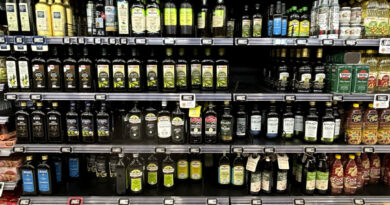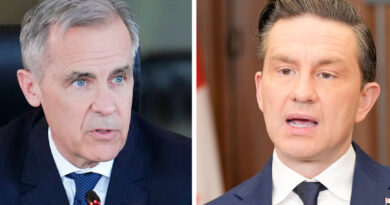White House Reports Decline in Illegal Crossings at Canada-US Border Amid Ongoing Tariffs
White House Press Secretary Karoline Leavitt mentions “successes” at the Canada-U.S. border, but does not disclose what would lead to the lifting of U.S. President Donald Trump’s tariffs on Canada.
“Operational control of the border is becoming a reality, and the [Trump] administration’s measures are producing significant results,” Leavitt said. “Those who illegally cross the border are being promptly deported and barred from returning to the United States.”
Trump initially cited the flow of people and fentanyl across the border as the reason for imposing 25 percent tariffs on Canadian exports to the U.S. However, data from U.S. Customs and Border Protection shows minimal fentanyl seizures at the northern border.
In response to Trump’s concerns, the Canadian government ramped up border protections, including deploying more aircraft and personnel. They also appointed a “fentanyl czar,” designated Mexican cartels as terrorist groups, and established a joint strike force with the U.S. to combat cross-border drug crimes.
Trump indicated that the tariffs would remain until fentanyl trafficking is eliminated, despite Canada’s efforts to address his demands.
Trump issued an executive order declaring a state of emergency at the border and implemented tariffs against Canada in March. While the duties were temporarily suspended for compliant imports, non-compliant goods still face a 25 percent tariff, with a reduced rate of 10 percent for energy and potash.
The White House has not commented on potential changes to the president’s tariffs following Leavitt’s statements.
Trump’s trade policies have led to market fluctuations, with reciprocal tariffs imposed and then paused, leaving a 10 percent tariff on affected countries. Negotiations for new trade deals are underway, with some tariffs on specific imports still in effect.
On April 22, Trump mentioned a transitional period in U.S. trade policies and highlighted ongoing negotiations with various countries. Leavitt confirmed receipt of 18 trade deal proposals but did not specify next steps.
Liberal Leader Mark Carney stated that Trump agreed to post-election negotiations for a new economic and security agreement with Canada after the country’s general election on April 28.
The Canadian Press contributed to this report.



